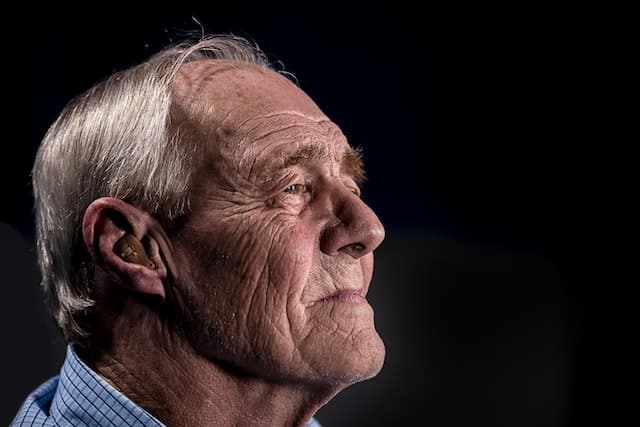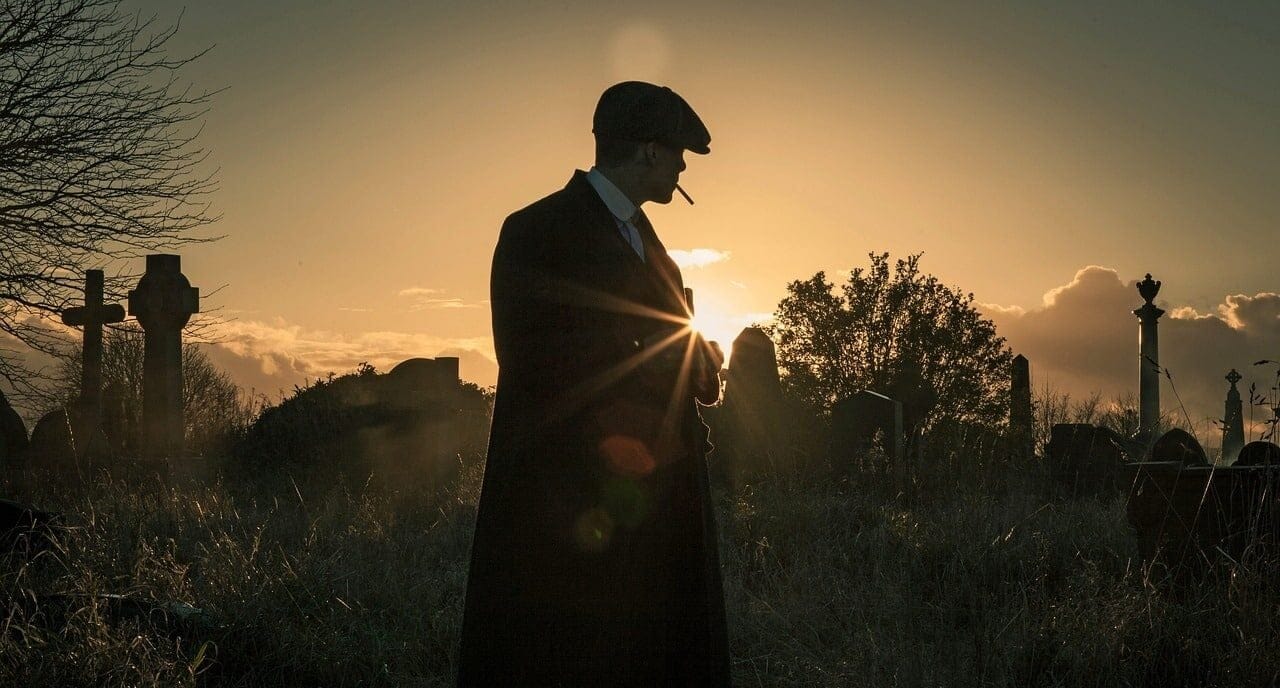








Key Points
- Life can be long (if we’re lucky), but littered with adversity
- Resilience is something we can all build
- Relationships offer protection
Disclaimer: Permission was sought from the client before publishing this case study, and all identifiable information has been changed in respect of the client and to protect their confidentiality.
Meet Mick...
Meet lifelong Eastender ‘Mick’. Mick was a client of mine who turned 80 by the time we ended our work together. We had around six sessions together due to organisational restrictions and in that time, I learned a lot about this man who has lived through many stages of life.
Not A Widower But...
…Mick had lost his wife in a sense. Sadly, his wife (who we will call Ann) had severe dementia and was going through the final stages of the cruel disease. This meant Ann had to be cared for around the clock in a care home, one that wasn’t the best according to Mick, only adding to his worry. Mick told me about instances when he’d visit his beloved wife and find her looking dishevelled in torn and tattered clothing. This was despite the fact he’d made sure Ann had plenty of good quality clothing with her, with her name dutifully sewn into each garment by their loving adult daughter.
Feeling Helpless
Mick also told me about a time when he witnessed care home staff searching frantically for missing residents, and about the gold bracelet he had lovingly gifted to Ann in the 60s. This bracelet was worth a few hundred pounds then, but was worth so much more to Mick, and now it was missing. He also spoke of a visit when their son was nearly evicted from the care home by staff. This was for the major transgression of taking a selfie with his mother on one of Ann’s ‘good days’, something he simply wanted to memorialise because it was a rare happier moment with mum, whose health was declining day by day.
Physical Health Decline
Mick reminisced about happier times when he and Ann lived together, entertaining neighbours and friends. And about how their home was known by others to be “always full of laughter”. Now Mick was often alone in his tower block flat, unless he was being visited by a health care professional to tend to his physical health. This consisted of daily bandage changes on his arm (where he had a painful ulcer), or administration of his usual dose of warfarin injections. And even though Mick was almost blind in his right eye, this did not stop him from doing his much loved 500-piece jigsaw puzzles. But now, even the mornings spent on this passion were no more, because of the cataract that had developed in Mick’s good eye, which meant his world was getting ever darker. Mick described anxiety about the upcoming surgery he had to have, to correct the problem. I genuinely wondered how I would be able to help Mick with all of this in such a limited number of sessions.
Anxiety & Depression Too?
Yes, you might imagine that Mick aught to be severely anxious, depressed, or both. But he wasn’t. In fact, when Mick and I met, he was considered mildly anxious and depressed according to the psychological questionnaires we use. One might wonder how this could possibly be the case. Here was this man, in the winter of his life, having experienced losing his wife to dementia, then losing her physically because of his own declining physical health. All resulting in loneliness and sadness, during COVID, which meant no visitations to the care home for months….and yet he was only mildly anxious and depressed?
How Was Mick Coping So Well?
Well, I’m sure you’re wondering what kind of elixir Mick had in his possession, or where his resilience came from. Indeed I thought about this as the sessions and weeks passed, especially as his mild depression and anxiety symptoms decreased to the ‘normal range’ (the general day-to-day experience of most people), which is considered non-clinical. As I learned more, I realised that there was no magic, no elixir, no 500-piece puzzle to solve. The reason that Mick was able to cope admirably well was because he was not experiencing the kind of social isolation which impacts many older adults. He had a supportive family who were involved with him on an almost daily basis. There was his son who would stock up his fridge, his grandchildren who would bring him fish and chips and spend time with him, his daughter who owned a pub and would encourage Mick to sing there as he did back in the days when he was a pub singer. Yes, Mick and his beloved wife had focussed their energies in the right places and were now reaping the rewards.
Unprecedented & Almost Century Long Study About Happiness in Older People
Indeed, Mick reminded me of a video I was touched by years before. It was a Ted Talk by Robert Waldringer about happiness. The Harvard study which began in 1938, and was still running in 2016, tracked 724 men over 75 years (an incredibly rare feat due to attrition rates and funding issues, etc). Researchers tracked participants annually, asking them about physical and mental health, homelife, and work. The participants belonged to two distinct groups; 19 year old Harvard students, many of whom served in WWII, and boys from Boston’s most deprived and disadvantaged neighbourhoods and families. As these individuals moved through life, they entered a range of professions, some became bricklayers, factory workers, businessmen, lawyers, doctors, and none other than future president John F. Kennedy. The researchers noticed how some progressed in life while others did the opposite, how some suffered with alcoholism and others developed mental health conditions like schizophrenia. The study was incredibly thorough, it involved taking regular questionnaires, blood samples, medical diagnostics, and later speaking to spouses too. Waldringer states that the research ultimately found: good relationships keep us happier and healthier.
Three Lessons From This Study:
- Social connections are really good for us, whereas loneliness kills. Simply put, those who nurture their social life and therefore experience feeling socially connected to family and friends are happier, physically healthier and live longer than those who are not connected. On the other hand, those who are isolated experience toxicity, that is, less happiness, decline in health and brain function, and all of this takes years off their lives.
- It’s not about how many friends you have or if you’re married, in fact it’s the quality of our relationships that count. So, it’s important to nurture the few friendships and family relationships we have, rather than collecting hundreds of ‘friends’ on social media platforms. Furthermore, experiencing relationships in which there is high conflict, and a deprivation of affection is found to be worse than ending those relationships. Whereas being in a warm relationship protects us. Indeed, this study reported that those who were happier in their relationships at circa 50 years old, were healthiest at age 80, and were able to regulate their mood well even when experiencing physical pain, not becoming down or despondent like their counterparts (those in unhappy relationships), which I also found to be true of Mick.
- Good relationships protect our bodies and brains. Secure attachment in our 80s will protect our brain health, including memory. Secure relationships are not relationships without ups and downs, as this is a normal aspect of most relationships, but if we know we can count on the other person, we are secure, and this is vital for our wellbeing.
So The Moral Of The Story Is...
The lesson is rather than focussing too much on fame, money, wealth, vanity, or work, it is important to lean into our relationships. This means putting energy into our social interactions because it really is true; we get out what we put in.
Mick exemplified the claims made in this study and even when he told me in his endearing Eastend accent about things like the pain in his arm when he’d have the bandages changed each week, or the state of his beloved wife Ann, who sadly did not seem to be getting the care she needed, he would become optimistic, make a joke, tell me he was a “jolly man” at heart or impersonate the endearing Brummie twang of a lifelong friend. Of course I wondered at times if this was his way of trying to protect me (which I did ask about more than once in various ways), or an avoidance strategy to facilitate coping. But actually, I came to believe that perhaps Mick had achieved what some of the men in the Harvard study had.
Take Home
Mick reminded me of the importance of social connection, something I have always valued but perhaps at times lost sight of. Clients often teach us much more than they realise, helping us to live better lives, be better practitioners, and even, live longer. Thanks Mick, for gracing my life, I hope you’re doing well and still charming those around you, who are blessed to have you in their lives.
- Why Is Suicide So Prevalent In KPOP? RIP Moon Bin
- PTSD: Case Study of Thomas Shelby
- Paedophilic Obsessive-Compulsive Disorder (POCD) I
- The Value Of Confronting Self-Doubt As A Psychotherapist
- What Happens When Trauma Is Ignored, Vs When It's Not
- A Warm Welcome From Phinity Therapy
- Rehanna Talks Issues
- Rehanna Discusses Phinity Services
- The HEALTHIER WAY To Grieve
- What Your THERAPIST'S TITLE REALLY MEANS!

- Robert Waldinger: What makes a good life? Lessons from the longest study on happiness | TED. (n.d.). Www.youtube.com. Retrieved November 8, 2022, from https://www.youtube.com/watch?v=8KkKuTCFvzI&t=11s&ab_channel=TED


